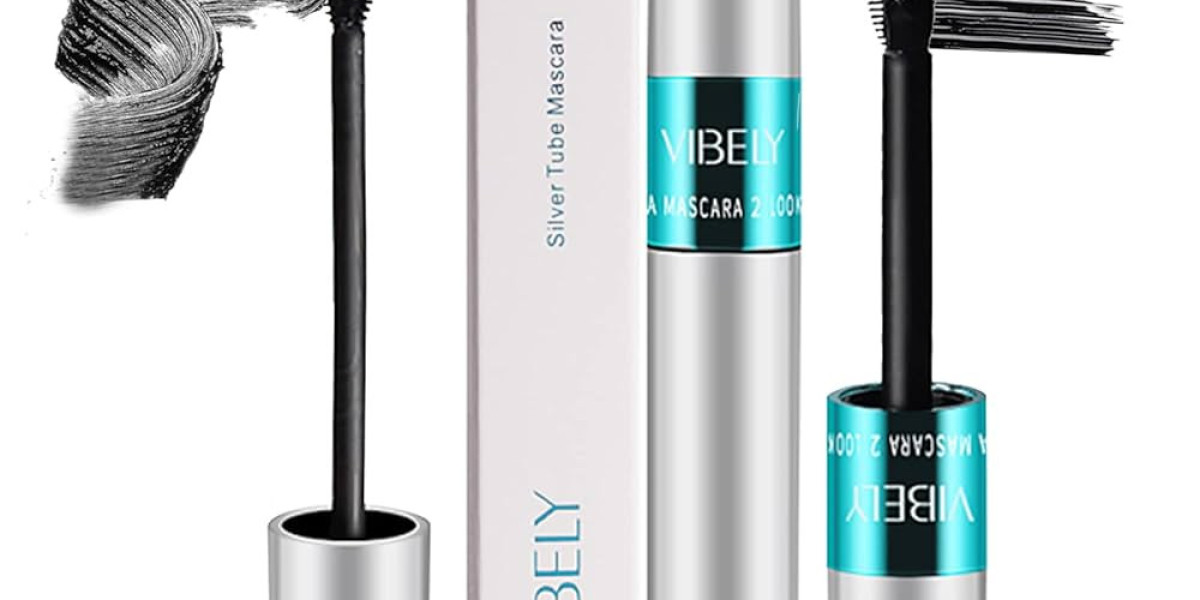The importance of providing top-notch toiletries cannot be overstated in the hospitality sector, as they contribute significantly to the guest experience. The demand for wholesale hotel toiletries ae driven by the need to cater to a diverse array of guest preferences and to maintain high service standards. Hotels seek to balance cost-effectiveness with quality, ensuring that the toiletries are luxurious and practical. The market includes products, from essential items like shampoo and soap to more specialised offerings such as eco-friendly and hypoallergenic options.
Benefits of Purchasing Toiletries in Bulk
Purchasing toiletries in bulk offers significant cost savings for hotels, as wholesale prices are generally lower per unit. This financial efficiency allows for better allocation of resources to other areas of the guest experience.
Additionally, bulk buying ensures a steady supply of essential toiletries, minimising the risk of stock shortages. Consistent availability of high-quality products maintains service standards, contributing to guest satisfaction. Bulk purchasing also simplifies inventory management, reducing the frequency of orders and the associated administrative tasks.
Moreover, it can enhance negotiating power with suppliers, potentially leading to further discounts or favourable terms. Overall, buying in bulk supports operational efficiency and cost-effectiveness.
Types of Toiletries Commonly Found in Hotels
Hotels typically provide an assortment of toiletries to meet guests' personal care needs. Shampoos and conditioners are fundamental and available in compact bottles or single-use sachets.
Soaps and body washes are also essential and offered in various scents and formulations. Complementing these are lotions and creams, which aid in maintaining skin hydration. Dental kits, shaving kits, and vanity sets may also be included to enhance convenience.
These products are selected to offer comfort and a touch of luxury, contributing to a positive guest experience. Various formulations, including eco-friendly or hypoallergenic ones, cater to different guest preferences, ensuring everyone can find suitable options.
Sustainability
Alongside experiential innovation, hotels must remain agile in response to changing regulations and shifting consumer priorities. For instance, increasing environmental regulations are prompting hotels to review energy consumption, waste management, and sourcing practices.
Similarly, data privacy laws affect how guest information is stored and used. To remain compliant and agile, hotels must monitor legislative updates, invest in staff training, and adopt flexible and transparent tech systems. Today’s traveller values personalisation, sustainability, and convenience. This means embracing technology for seamless check-ins, offering eco-friendly amenities, and curating experiences that align with guests' preferences.
Refine Hotel Operations
Loyalty programs, wellness offerings, and inclusive service practices shape a guest-centric strategy. Moreover, feedback mechanisms like post-stay surveys and real-time service reviews provide critical insights that help refine hotel operations and customer engagement.
One of the biggest challenges—and opportunities—lies in harmonising sustainability goals with efficient resource management. Green certifications, energy-saving systems, and waste-reduction initiatives improve environmental impact and often lead to long-term cost savings. Collaborating with suppliers prioritising eco-conscious materials and ethical practices can streamline procurement while reinforcing the hotel’s commitment to responsible hospitality.
Looking ahead, the hotels that stand out will succeed in blending comfort, creativity, and conscious living. The industry can cultivate spaces that delight guests and reflect purpose-driven leadership by leveraging collaborations with local artisans, remaining responsive to regulatory shifts, and consistently aligning with consumer values.
Sourcing Quality Products for Guests
Selecting high-quality toiletries is essential for enhancing the guest experience. Superior products often include natural and skin-friendly ingredients that are well-received by guests. Eco-friendly and sustainable options are increasingly favoured, aligning with the rising demand for environmentally responsible choices.
Additionally, ingredients' provenance and ethical sourcing can appeal to discerning travellers. Hotels can meet and exceed guest expectations by prioritising premium quality and sustainability, fostering loyalty and positive reviews.
Packaging and Branding Considerations
Packaging significantly influences guests' perceptions of toiletries. Customised packaging that aligns with a hotel's brand identity enhances a cohesive and professional image. Selecting appropriate packaging materials is equally essential, balancing aesthetics, functionality, and environmental impact.
Eco-friendly packaging options, such as biodegradable or recyclable materials, are increasingly popular and can bolster a hotel's reputation for sustainability. Additionally, packaging should ensure product integrity during storage and use, maintaining the quality and effectiveness of the toiletries.
Investing in well-designed, sustainable packaging can differentiate a hotel in a competitive market, appealing to environmentally conscious and quality-focused guests. Properly labelled packaging with clear information about ingredients and usage can also enhance the guest experience by providing transparency and ease of use.
Regulations and Compliance in the UK
Hotels in the UK must ensure their toiletries comply with stringent health and safety standards. Adhering to regulations governing ingredient safety and allergen labelling is crucial.
Products should be accurately labelled with information regarding their contents, enabling guests to make informed choices, particularly those with allergies or sensitivities. Regular updates on regulatory changes are vital, ensuring continuous compliance and avoiding legal complications.
Hotels must also consider the environmental regulations governing packaging and waste management. Partnering with reputable suppliers who follow industry standards and provide necessary certifications can help maintain compliance. Stringent quality control measures should be in place to guarantee the consistency and safety of the toiletries offered.
Managing Inventory and Logistics
Efficient inventory management and streamlined logistics are vital for maintaining a consistent supply of hotel toiletries. Regular stock audits and automated ordering systems help ensure optimal inventory levels.
Logistical considerations, particularly for bulk orders, necessitate reliable partnerships with suppliers to guarantee timely delivery and minimise the risk of shortages. By integrating technology and establishing clear communication channels with suppliers, hotels can achieve a seamless supply chain.
Additionally, leveraging data analytics can provide valuable insights into usage patterns, enabling more precise forecasting and better inventory control. A well-coordinated approach not only optimises operational efficiency but also contributes to sustained guest satisfaction by ensuring the availability of high-quality toiletries.
Staying Ahead Of Consumer Expectations
In the ever-evolving wholesale hotel toiletries, staying ahead of consumer expectations and regulatory shifts is essential to maintaining competitiveness. One of the most promising avenues for innovation lies in strategic collaborations with local and artisanal brands. These partnerships infuse authenticity and cultural relevance.
From locally sourced toiletries and handmade décor to regionally inspired culinary offerings and beverage selections, collaborations with artisanal producers create memorable, place-based experiences.
Guests increasingly seek immersive stays that connect them with the local culture, and unique touches such as handwoven linens or small-batch coffees contribute to that narrative. These partnerships enhance aesthetic and experiential value and support local economies and small-scale entrepreneurs.
Trends in Hotel Toiletries
The hotel toiletries market is experiencing significant changes driven by shifting consumer preferences. There is a growing demand for organic and natural products as guests become more health-conscious and environmentally aware.
Personalised toiletries are also on the rise, offering unique formulations or bespoke fragrances that cater to individual tastes. Another emerging trend is including eco-friendly packaging, reflecting an increased focus on sustainability.
Luxury and boutique hotels increasingly incorporate high-end, artisanal brands to enhance the guest experience. Technological advancements also enable bright, connected dispensers that monitor usage and reduce waste. These trends indicate a dynamic market where innovation and responsiveness to guest preferences are key to success.
The Role of Customer Feedback
Guest reviews serve as a crucial source of information for enhancing the selection of toiletries in hotels. Analysing feedback allows hotels to gain valuable insights into guest preferences, uncovering which products are most appreciated and identifying areas needing improvement.
By responding to this feedback, hotels can adjust their offerings to meet the needs of their guests better, ensuring a higher level of satisfaction. Additionally, feedback can highlight emerging trends and preferences, guiding hotels in making informed decisions about future purchases.
Incorporating guest opinions into the decision-making process can foster a sense of involvement and appreciation, further boosting guest loyalty. This dynamic approach helps maintain high standards and adapt to changing expectations, benefiting the guests and the hotel.
Collaborations with Local Brands
Collaborations with local brands can significantly enhance a hotel's appeal by introducing regional flair and authenticity to the guest experience. Such partnerships often include unique and high-quality toiletries reflecting local culture and environment.
Guests frequently appreciate the thoughtfulness and novelty of locally sourced products, which can make their stay more memorable. Additionally, supporting local businesses fosters goodwill and strengthens community ties, contributing positively to the hotel's brand image. These collaborations can also provide a competitive edge by offering distinctive amenities that set the hotel apart.
Sustainability Practices in the Industry
Sustainability has become a focal point in the hospitality sector, with numerous hotels adopting measures to minimise environmental impact. One prevalent practice is refillable toiletry dispensers, reducing the reliance on single-use plastic bottles.
Hotels are also increasingly selecting eco-friendly products and packaging, such as biodegradable or recyclable materials. Implementing these practices aligns with global environmental goals and enhances a hotel's reputation among guests who value sustainability.
By integrating eco-friendly options and reducing waste, hotels contribute to a more sustainable future while meeting the growing demand for responsible travel choices. Sustainable practices in toiletry provision clearly reflect the industry's commitment to environmental stewardship and innovation.
Future Outlook for Hotel Toiletries
The future of hotel toiletries is poised for dynamic advancements, with a significant emphasis on innovation and differentiation. Sustainability will continue to be a major driver, with more hotels likely to adopt eco-friendly practices and products.
Technology integration in toiletries, such as bright dispensers that monitor usage, is expected to rise, offering greater efficiency and waste reduction. Personalisation will also become increasingly important, with hotels seeking to provide bespoke amenities tailored to individual guest preferences.
Conclusion
The role of wholesale hotel toiletries extends far beyond mere functionality, serving as a crucial element in defining guest experience and brand perception. By carefully selecting high-quality products that cater to diverse preferences, hotels can significantly enhance guest satisfaction and foster loyalty. Embracing eco-friendly practices and sustainable options aligns with global environmental initiatives and appeals to the growing number of environmentally conscious travellers. Staying abreast of market trends and consumer demands ensures that hotels remain competitive and relevant. Collaborations with local brands can add a unique touch, enriching the guest experience with regional authenticity.
FAQs
FAQ 1: How do quality toiletries impact guest satisfaction and brand perception?
Toiletries are among the first amenities guests interact with, often shaping their initial impressions of your hotel’s standards. High-quality products with appealing scents, luxurious textures, and clear branding signal care and attention to detail.
FAQ 2: What trends drive wholesale hotel toiletries choices in today’s market?
Eco-conscious formulations, minimalist packaging, and wellness-inspired fragrances are trending in hospitality. Wholesale hotel toiletries are shifting toward biodegradable ingredients and refillable dispensers to reduce plastic waste. Vegan, cruelty-free, and locally sourced products are also gaining traction, particularly among younger travellers.
FAQ 3: How can buying wholesale toiletries improve cost efficiency for hotels?
Purchasing toiletries in bulk allows hotels to reduce per-unit costs and maintain consistent inventory across properties. Wholesale suppliers often offer customisation options, letting you add branding or tailor formulas without inflating the budget.
Related Business Listings |














